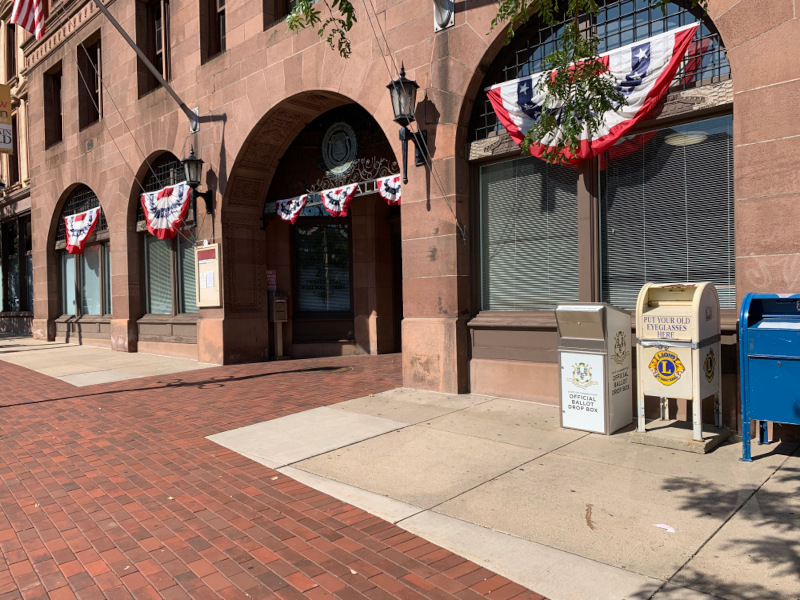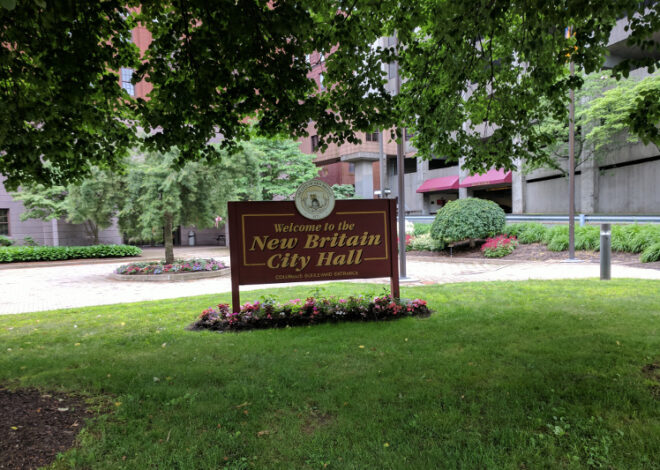
School Building Committee Resolution Curtails Checks and Balances On Construction Projects
“A consequence of the new SBC resolution is that it contributes to a bigger divide between City Hall and the BOE. New Britain’s close to last ranking in how much the municipal government contributes to public schools is a perennial and contentious issue at budget time every year and this year is no exception.”
By John McNamara
A controversial resolution that removes Common Council and Board of Education approval of all contracts and spending on school construction projects came back to the Common Council April 28th meeting and was approved on a party line vote.
The resolution, authored by Republican caucus members Daniel Salerno and Sharon Beloin-Saavedra and revised at the April 15th Consolidation Committee meeting, removes key language that requires that contracts and expenditures on multi-million dollar school projects are “subject to the approval of the board of education and common council.” Instead, it vests control of School Building Committee (SBC) appointments to the Mayor, leaving the Council with two members on the seven-member committee.
According to the new resolution the SBC will “engage, select, and enter into or continue all necessary contracts with contractors, architects, landscape architects, or engineers, and within the limits of the appropriations made by the council, this committee shall engage and fix the salary of one or more construction representatives.”
Salerno and Beloin-Saavedra, acting on behalf of Mayor Erin Stewart and willingly diminishing the Common Council’s role, cite mayoral powers in the City Charter granting appointment power for all “boards and commissions” to the Mayor as a justification for the sweeping changes that hand the purse strings and contracting over to the SBC for school renovations and construction. They say they are just cleaning up the language in accordance with the charter.
As if trying to obscure the intent of the resolution, the revised ordinance has a preamble that implies Common Council members would continue to have a say in SBC meetings and deliberations or, for that matter, any other board or commission using general ordinance language on the access any common council member has to go to a public meeting: “Alderpersons may attend any meetings. The members of the council, or any of them, may attend the regular, special, or other meetings of all boards, commissions, and agencies when, in their discretion, their presence would best serve the interests of the city.”
Unlike boards and commissions mandated by the City Charter, however, the School Building Committee is created by ordinance with purposes and conditions set by the Common Council in accordance with powers granted to the legislative branch (the Council). The mayoral powers justification for ending all BOE and Council oversight on school building projects is both exclusionary and unwise given the large amounts of taxpayer money involved on these projects which are heavily reimbursed by the state and its bonding authority. Most recently makeovers of the Smalley and Gaffney schools have cost upwards of $80 million.
Although the lion’s share of funding for any school construction comes from the state, Connecticut law is silent on local school building committees, their powers and composition, according to a legislative analysis on SBCs and school construction. What the analysis does say, however, is that boards of education are ultimately responsible and must “make a continuing study of the need for school facilities and of a long-term school building program.” State statutes do no specify how local school boards must carry out their responsibility for maintaining school buildings. Nothing either requires or allows a board to, or prevents it from, establishing a permanent committee to oversee school maintenance.”
The revised New Britain resolution makes the Superintendent of Schools an ex-officio member of the SBC which is to say the BOE’s representative is an observer without a vote.
Democratic Alderman at Large Chris Anderson opposed the revised ordinance asserting that it “consolidates power, reduces transparency and eliminates checks and balances.” He was joined by five other Democrats on the Council opposing the move to usurp Common Council and Board of Education authority over public monies they appropriate and are responsible for in the school district’s buildings.
A consequence of the new SBC resolution is that it contributes to a bigger divide between City Hall and the BOE. New Britain’s close to last ranking in how much the municipal government contributes to public schools is a perennial and contentious issue at budget time every year and this year is no exception. Politically, it serves the Mayor and her Council cohorts well to disparage the BOE by implying it wastes money as they engage in tax-cut demagoguery. During the Common Council’s discussion of the SBC resolution, for example, Alderwomen Beloin-Saavedra, a former BOE President, didn’t help BOE-City Hall cooperation in her defense of the amended resolution. She disparagingly pointed to the BOE and school administration as the place where more oversight is needed,asking “who’s watching the henhouse over there?”
And as with most issues to come before the Council the nine members of the Republican caucus (they dare not call themselves Republican and go by the name of the RUD caucus) remained rubber stamps for Mayor Stewart, ceding absolute control over the school construction process and the opportunities it presents the city administration for patronage, favors and picking contractors.
Posted from https://nbpoliticus.com/




